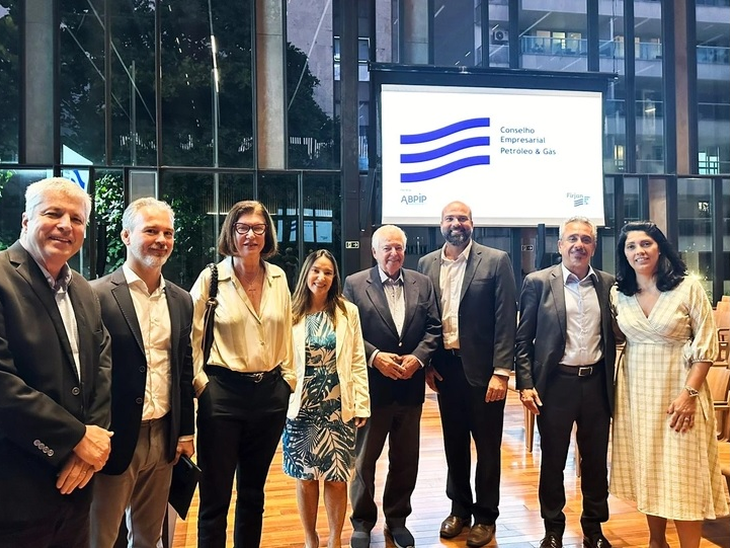
 Mature Fields
Mature Fields
The meeting was attended by members of ABPIP and executives from Mandacaru, PRio, and Perenco.
T&B Petroleum/Press Office Firjan
Special meeting of the Oil and Gas Business Council of the Federation of Industries of Rio de Janeiro (Firjan) welcomed the Brazilian Association of Independent Oil and Gas Producers (ABPIP) and its associates at the Casa Firjan on 11/07. The increased closeness of the institution with Firjan was highlighted by a shared agenda focusing on natural gas utilization and increased production in mature oil fields, largely developed by independent producers.
"We all have an interest in energy changes for the planet's survival. However, overnight changes in energy matrices are not feasible. We cannot forget that we still have a massive production of oil and gas. You have well accepted the challenge of production in mature fields. An important agenda in Rio is the utilization of natural gas. Brazil imports 100% of the methanol and 80% of the petrochemical derivatives it uses. We were once independent in the past and need to return to that status. Today's dynamics will amplify our voice to be heard," stated Eduardo Eugenio Gouvêa Vieira, President of Firjan, who attended the meeting accompanied by Luiz Césio Caetano, the federation's Vice President.
Márcio Felix Carvalho Bezerra, President of ABPIP, praised the partnership with Firjan and announced that the Association has opened an office in Rio de Janeiro: "In this new era of energy transition, the use of petroleum in the petrochemical industry is growing, while its use in transportation remains consistent. There has been greater participation from independents operating both onshore and offshore. This stimulating environment for innovation at Casa Firjan helps refresh ideas on how independent producers will face this transition."
The "Rio de Janeiro State Foreign Trade Diagnosis," prepared by Firjan and presented this week, served as the starting point for Cynthia Santana Silveira's analysis, the Council President. "The state's trade balance totals $70 billion this year, while Brazil's is $600 billion. Of the $45 billion Rio exports, 78% consists of oil and natural gas. However, in relation to manufactured products, the percentage from Rio decreases. We need to work in this niche, alongside ABPIP, to strengthen our segment in the oil production supply chain," Cynthia reported, mentioning that Independent operators in mature wells are still a novelty in Brazil.
Building Possible Futures for Independent Operators
Magda Chambriard, Vice President of the Council, delivered a lecture specifically addressing the construction of potential futures for independent operators. Investments, regulation, and market were the keynote of her presentation. "Continuity in public policies is essential. Oil production is increasing, and Brazil is among the top 10 producers. On the other hand, the Campos Basin is experiencing a steep decline, which is reversible. We have 9 billion barrels to recover. Independent companies play a crucial role in this function and need to be embraced by society for the benefits they bring to their surroundings."
Magda emphasized that the Brazilian regulatory framework and environmental licensing should be suitable for companies of different sizes and that domestic sales should have more advantages than exports. She cited examples from Perenco, Trident, and PRio, urging incentives for companies to continue building strong portfolios in a possible future.
Executives from Mandacaru, PRio, and Perenco – Clarindo Caetano, Emiliano Fernandes, and Leonardo Caldas, respectively – shared insights into the development of their independent companies, reinforcing the points raised by Magda Chambriard. PRio, formerly known as PetroRio, is already implementing an international practice called tieback, which involves the synergy of a platform for two oil fields, optimizing costs. The companies also mentioned the development of specialized labor and a preference for the national industry.
Contact us